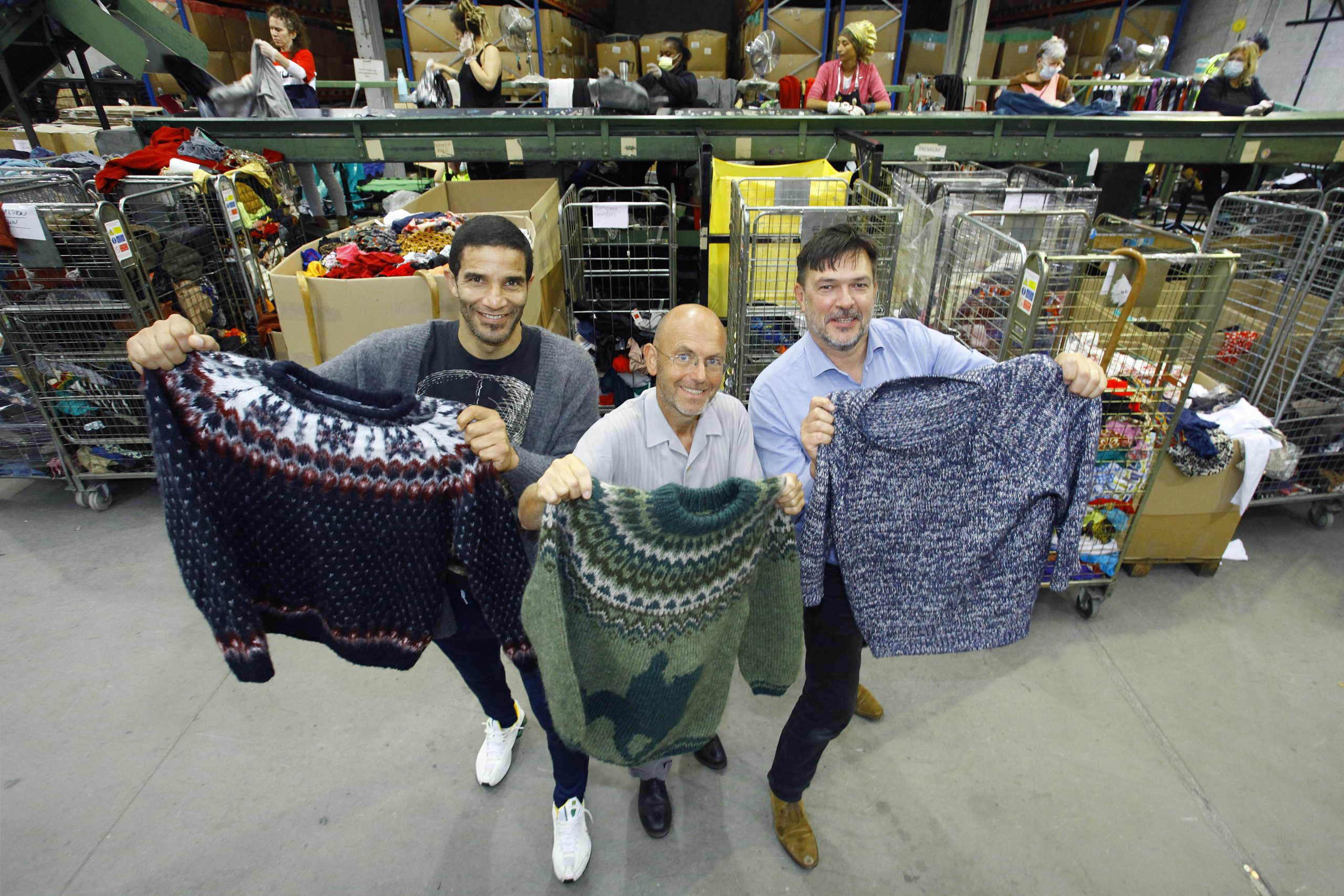SCOTS are being encouraged to wrap up warm this winter instead of superheating their homes.
Research has revealed that 50% of households in Scotland are heating their homes higher than the recommended healthy level.
The study, conducted by Utilita Energy, also showed that, for the entirety of the UK, 48% of homes were being heated higher than recommended.

From left to right: former England footballer David James, fashion designer Wayne Hemingway and Utilita Energy CEO Bill Bullen.
These homes are warmed to 24 degrees centigrade – the same temperature as Barbados – for half of the year.
One result of this is to produce 13 million tonnes of carbon dioxide each year, a heat trapping gas which is contributing to climate change.
To raise awareness and inspire change, Utilita Energy is launching the Wear Warm campaign, aimed at changing the overheating habits of 13 million UK households – 1.2 million of which are in Scotland.
Launching the effort to change consumer behaviour were England goalkeeper and environmentalist David James MBE and British fashion designer Wayne Hemingway MBE.
Commenting on the campaign, David James MBE said: “One of my personal bugbears is seeing people sitting at home in the winter, wearing a t-shirt, with the heating cranked up.
“There’s absolutely no sense in it, and now we have the evidence to reveal the impact that this type of behaviour is having on the planet and the pocket
“For example, to offset the pollution generated by overheated homes here in the UK, we’d need to plant 51 million trees each year – that’s enough to cover 392,000 football pitches.”
Wayne Hemingway MBE added: “It’s bloomin’ obvious really, it totally makes sense to put another layer on and it makes sense on many levels; for the environment, for your health (cooler environments help prevent the spread of a number of illnesses) and your pocket. Why wouldn’t you?”
The optimal temperature to heat homes to is between 18 and 21 degrees, and the campaign highlights the importance of not exceeding this.
Instead, consumers are encouraged to get cosy instead of costly this winter.
Archie Lasseter, global warming expert and sustainability lead at Utilita Energy, said: “If every household made a pledge to stay within 18-21 degrees, the UK would hit its net zero obligation almost two years ahead of its deadline.”
Bill Bullen, Founder and CEO of Utilita Energy said: “Energy bosses and MPs have previously been berated for daring to suggest that consumers put a jumper on to stay warm, and on the subject of fuel poverty – it’s not the right message.
“But there’s no excuse for today’s Government to avoid a simple ‘don’t go above 21 degrees message’, as we have.
“We’re confident that our simple and effective message will have a positive impact on the pockets of bill payers this winter and will help out Mother Earth – let’s make the year 2021 the last year that we heated our homes higher than 21 degrees.”
Utilita is an energy company supply 10,000 households across Scotland, committed to helping reduce energy usage and waste.
With the campaign featured in 660 charity shops across the UK, there is a double aim to not only reduce heating bills and energy use, but to save preloved warm clothes from going to landfill.
Maria Chenoweth, CEO of TRAID, has signed up 12 charity ships to participate in the Wear Warm campaign.
She said: “The UK is so fortunate to have a thriving network of 11,200 charity shops, on nearly every high street. Let’s use them to stay warm!
“If you need to replenish your winter wardrobe, buy second-hand. It’s one of the best things you can do for the environment, especially when you consider that 10,000 items are thrown into landfill every five minutes in the IK alone, while the global fashion industry pumps out 3.3 billion tonnes of greenhouse gases annually contributing significantly to the climate crisis.
“TRAID’s charity shop rails are packed with affordable, high quality winter wear selected expertly by our sorting team. So, when your home starts to feel the chills, reach for your wardrobe – and your local charity shop – instead of turning up the heat.”
For the homes in Scotland currently being overheated, turning down the thermostat three degrees could generate an annual saving of £174 per household, adding up to £206 million across the country.
Further information on the campaign, including how to take part if you manage a charity shop, can be found here.